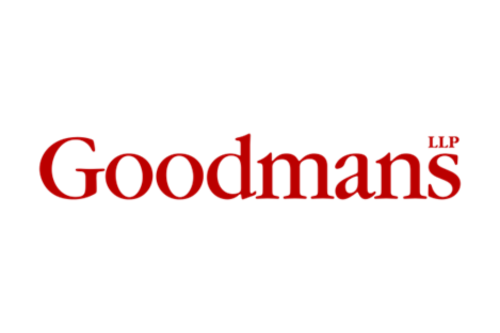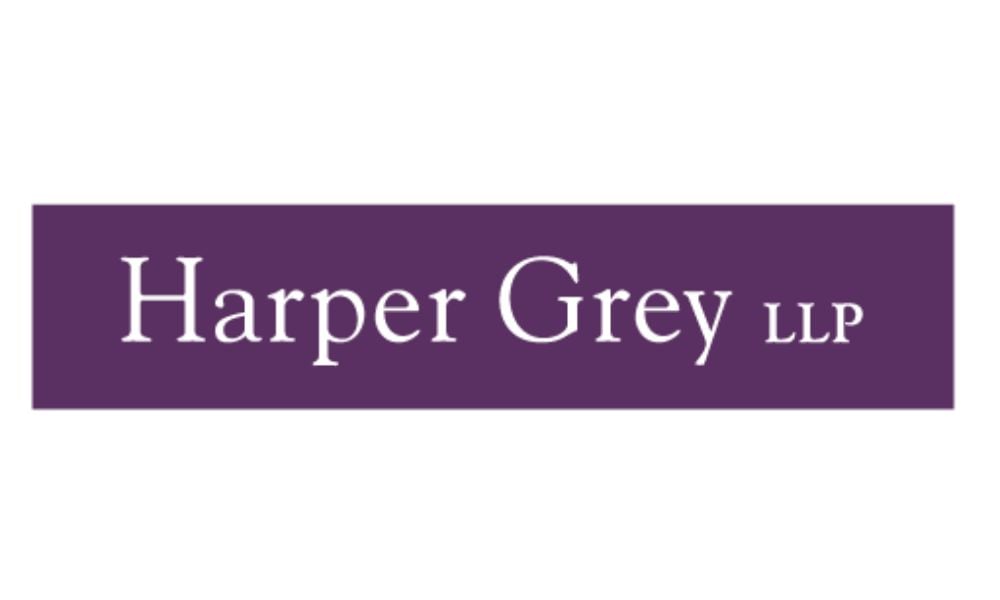Canada has long been recognized as a jurisdiction that is relatively “shareholder friendly,” particularly in comparison to the United States. As shareholder activism continues to shape the Canadian corporate landscape, understanding the full range of legal mechanisms available to influence corporate governance and transactions is crucial for investors seeking to gain an edge. It is also important for corporate boards to recognize where their vulnerabilities lie. A deeper understanding of the lesser-known mechanisms can offer unique and potentially pivotal advantages. Shareholder-called meetings are one such tool. This article examines the legal framework governing shareholder-called meetings in Canada and highlights key considerations for both investors and corporate boards.
Section 143(4) of the CBCA[1]: Shareholder-called meetings
Canadian corporate statutes allow shareholders to requisition a shareholder meeting, which is to be called by the directors.[2] If the directors fail to do so, shareholders may call the meeting themselves. In this sense, shareholder-called meetings are a reactionary tool, available only when the board does not fulfill its statutory obligation.
Section 143(1) of the CBCA provides that holders of not less than five per cent of the issued shares of a corporation that carry the right to vote at a meeting sought to be held may requisition the directors to call a meeting of shareholders for the purposes stated in the requisition.[3] To transact the business set out in the requisition, section 143(3) requires the directors to formally call the meeting, meaning they must pass a resolution and publicly announce the meeting date.[4] This obligation is subject to certain statutory exemptions, discussed below.
If the directors fail to call the meeting within 21 days of receiving a valid requisition, section 143(4) entitles any shareholder who signed the requisition to call the meeting themselves.[5] While a shareholder-called meeting is rare in practice since directors have an interest in controlling the meetings, understanding the scope of these provisions can provide shareholders a strategic advantage and help them avoid procedural missteps if the opportunity arises. It can also alert corporate boards to tactics that could be used against them.
Preliminary considerations
For a shareholder-called meeting to occur pursuant to section 143(4) of the CBCA, two conditions must first be met: (i) the meeting must have been properly requisitioned by the shareholder(s), and (ii) the directors must have refused or failed to call the requisitioned meeting. Given that the case law frequently hinges on these points, it is essential for investors and corporate boards alike to understand what is required of them.
-
Considerations for shareholders: Validity of the requisition
Registered Ownership of 5% of Shares
As mentioned above, section 143(1) of the CBCA provides that “holders” of at least five percent of the issued voting shares of a corporation may requisition the directors to call a shareholder meeting for the purposes stated in the requisition.[6] Section 143(2) explicitly confirms that multiple shareholders can combine their holdings to meet the five percent threshold.[7] However, what is less clear is the meaning of “holders.”
In Wells v Bioniche Life Sciences Inc., the Court affirmed that a “holder” means the registered holder of the shares.[8] In Wells, activist shareholders requisitioned a meeting to replace all directors on the board of Bioniche Life Sciences Inc. (“Bioniche”). The board, however, passed a resolution declaring the requisition invalid because one of the applicants held their shares through an intermediary.[9] The Court ruled that the company was entitled to reject the requisition under section 143 of the CBCA, as beneficial shareholders do not qualify as “holders” under the statute.
While shareholders can easily remedy this issue by registering the shares in their own name and submitting a second requisition (or by having the intermediary requisition on their behalf), this comes at a cost – they lose the element of surprise and reveal the business to be transacted. This allows the board to prepare a defensive strategy to thwart the activist’s proposed business. In Wells, for example, the board strategically fixed a record date after rejecting the first requisition. As discussed below, fixing a record date is one of the exemptions from calling a requisitioned meeting. Since the board had already set a record date before the activists submitted a valid requisition, it was legally exempt from calling the meeting.[10]
A noteworthy corollary to the requirement that “holders” be registered holders of shares is that there is no requirement to disclose the ultimate beneficial owner of the shares. In TELUS Corporation v Mason Capital Management LLC, the Court held that the purpose of identifying the requisitioning shareholder is solely to verify whether they meet the required five percent threshold.[11] When shares are held through an intermediary, as they were in TELUS Corp,[12] there is no obligation to disclose the beneficial owner’s identity. The Court’s focus on the plain meaning of the provision was also evident in its approach to the “empty voting” issue. Mason had a largely hedged position, meaning it had little economic exposure to TELUS Corporation.[13] While the Court acknowledged concerns that Mason’s interests were not aligned with the company’s long-term financial well-being, it ultimately declined to intervene, concluding the remedy must instead lie in legislative and regulatory reform.[14]
Sufficient detail of the business to be transacted
Section 143(2) of the CBCA requires that a requisition “state the business to be transacted at the meeting” but does not provide further guidance on the level of detail required.[15] In Wells, the Court held that the description of the proposed business must be detailed enough to allow the directors to issue a notice of the requisitioned meeting that contains “sufficient detail to permit the shareholder to form a reasoned judgment thereon.”[16]
The Court further clarified that when a requisition seeks the election of new directors, “sufficient detail” includes the names and qualifications of the proposed nominees.[17] The board was entitled to reject the first requisition on a secondary basis: the activists failed to provide the board with the names and basic biographical information of the proposed directors before the board met to consider the requisition.[18] As a result, it is now established market practice to include complete biographies of nominee directors when a shareholder requisitions a meeting for the purpose of removing and replacing directors.
Avoiding invalid matters
Pursuant to section 143(3)(c), shareholders should ensure that the business of the meeting as stated in their requisition does not include matters described under subsections 137(5)(b) to (e) of the CBCA.[19] Reading these sections together,[20] directors have the right to refuse to call a requisitioned meeting if:
- it clearly appears that the primary purpose of the [requisition] is to enforce a personal claim or redress a personal grievance against the corporation or its directors, officers or security holders (a “very high threshold” that is not met by the mere existence of an element of personal interest)[21];
- it clearly appears that the [requisition] does not relate in a significant way to the business or affairs of the corporation;
- not more than the prescribed period (two years)[22] before the receipt of a [requisition], a person failed to present, in person or by proxy, at a meeting of shareholders [that the person requisitioned], [the proposed business];
- substantially the same [requisitioned] meeting of shareholders [was] held not more than the prescribed period (five years)[23] before the receipt of the [requisition] and the [proposed business] did not receive the prescribed minimum amount of support[24] at the meeting; or
- the rights conferred by [section 143] are being abused to secure publicity.
-
Considerations for directors: Refusing to call the requisitioned meeting
Exemptions – Fixing a record date or calling a meeting
Ensuring a requisition is valid is only one side of the equation – directors also have statutory grounds to refuse to call a meeting under certain circumstances. Along with the exemptions under section 143(3)(c), directors may be exempt from calling a requisitioned meeting if, under section 143(3)(a), a record date has been fixed in accordance with section 134(1)(c) and notice has been given, or, under section 143(3)(b), the directors have already called a shareholder meeting and given notice as required by section 135.[25]
Airline Industry Revitalization Co v Air Canada and Wells offer valuable guidance on when these exemptions may be relied upon.[26] In Air Canada, AirCo sought an order requiring Air Canada’s board to call a shareholder meeting between November 4 and 8, 1999. The requisition sought shareholder approval for steps necessary for AirCo’s eventual takeover of Air Canada.[27] The Court held that the "record date" referenced in section 143(3)(a) of the CBCA refers only to a record date for a meeting that was fixed before the requisition was received and at which the requisitioned business can nonetheless be considered.[28] As a result, the Court determined that Air Canada’s board could not rely on this exemption to reject the requisition as the AirCo proposal would not be considered at the scheduled meeting.[29] Similarly, the Court clarified that section 143(3)(b) applies only where the directors have already called a meeting in which the requisitioned business may nonetheless be addressed.[30]
Directors should be mindful that these statutory exemptions exist to prevent unnecessary duplication of meetings, not as a tool to block shareholder rights. Courts have made it clear that directors cannot sidestep their obligations simply by fixing a record date for an unrelated meeting. Nevertheless, market participants should be aware that gaming the record date is a tactic still being used by boards and can be effective absent a challenge by shareholders.
In Wells, the Court emphasized that a shareholder’s right to requisition a meeting is only meaningful if it can be exercised in a timely and expeditious manner. To rely on the section 143(3)(a) or (b) exemptions, the directors must ensure that any meeting called occurs within a reasonable timeframe, measured against when the requisition was delivered and the date proposed by the shareholder.[31] Additionally, section 143(3)(b) requires compliance with the section 135 notice requirements and thus section 44 of the CBCA Regulations, which mandate that notice of the meeting’s time and place be provided no more than 60 days before the meeting.[32] If these timing requirements are not met, the directors are obligated to call the requisitioned meeting unless another valid exemption applies.
The section 143(3)(a) and (b) exemptions exist in addition to the section 143(3)(c) exemption, which allows directors to reject a requisition if it includes proposals that fall within the prohibited categories under section 137(5). Regardless of the exemption relied upon, directors should be mindful that courts are highly skeptical of attempts to use procedural technicalities to limit shareholder rights. If a board’s actions are perceived as undermining the statutory rights of minority shareholders, judicial intervention may follow.
Shareholders calling the meeting
As mentioned above, pursuant to section 143(4), if the directors fail to call a meeting within 21 days after receiving a valid requisition when legally required to do so, any shareholder who signed the requisition gains the right to call the meeting themselves.[33]
Tracey v Gokturk illustrates a straightforward application of this provision.[34] In Gokturk, the petitioning directors proposed a date for a shareholder meeting but ultimately failed to vote on the matter.[35] Since 21 days had elapsed since the requisition, the respondent shareholders and directors were entitled to step in and call the meeting. The Court refused the petitioning directors’ request to adjourn the meeting, holding that the respondents had validly exercised their statutory right.
Calling the meeting following a refusal by the directors – CBCA vs provincial corporate statutes
The situation becomes more complex where directors are exempt from calling the meeting and refuse to do so pursuant to section 143(3). Whether shareholders are barred from calling a meeting in these circumstances depends on the governing corporate statute.
Under the CBCA, section 143(4) is broadly worded and does not prohibit shareholders from calling a meeting even if the directors are exempt from doing so. This interpretation has been affirmed by case law. In Wells, for instance, the Court held that, although the directors were exempt from calling a meeting in response to the second requisition since a record date had been fixed, the activists did not lose their right to call the meeting themselves.[36] However, the Court signalled that this remedy is not absolute and that there exist circumstances under which the Court would be unlikely to uphold a meeting. Such circumstances include instances where the directors already called a meeting or where the subject-matter of the proposed meeting did not involve the proper business of the corporation.[37] While the Court in Wells held that section 143(4) of the CBCA does not close the door on this potential remedy, shareholders should be aware it is discretionary.[38]
In contrast, this remedy is unavailable altogether under certain provincial corporate statutes. For example, section 105(4) of Ontario’s Business Corporations Act, which is otherwise nearly identical to section 143(4) of the CBCA, is prefaced with the phrase “subject to section (3).”[39] Both the courts and legal scholars have interpreted this language as limiting shareholder rights, suggesting shareholders cannot call a meeting under section 105(4) of the OBCA if the directors have lawfully refused to do so.[40]
Shareholders must carefully assess whether their right to call a meeting is restricted by the applicable corporate statute. If operating under a statute that subordinates shareholder rights to director exemptions, shareholders must be especially diligent in ensuring their requisitions are procedurally sound and do not provide directors with a valid basis to refuse to call the meeting.
Procedure of shareholder-called meetings
The chief utility of shareholder-called meetings is that shareholders have control over when the meeting takes place, which can provide strategic benefits depending on the circumstances. An additional benefit is that under section 143(6), unless the shareholders at a shareholder-called meeting otherwise resolve, the corporation must reimburse the shareholders the expenses they reasonably incurred in requisitioning, calling and holding the meeting.[41] However, shareholders should be aware they generally enjoy less latitude than directors in determining the meeting’s location and must exercise diligence in ensuring compliance with procedural requirements.
Location of the meeting
When a shareholder exercises their rights under section 143(4), the responsibility for calling the meeting – which ordinarily falls on management – shifts to the shareholder. Section 143(5) requires the meeting be called “as nearly as possible in the manner in which meetings are to be called pursuant to the by-laws, [Part XII] and Part XIII [of the CBCA].”[42] Since corporate by-laws often specify that meetings must be held at the company’s head office or at a location chosen by the directors, shareholders may find themselves restricted to calling the meeting at the head office.[43]
Conduct of the meeting
Section 143 does not specify how a shareholder-called meeting should be conducted. This introduces an element of risk for shareholders as directors may be motivated to challenge the meeting on procedural grounds. Ultimately, the ability for shareholders to put business they wish to transact before a meeting of shareholders is a fundamental shareholder right. As such, it is our view that a court would likely rule in favour of the shareholders, provided there was a good faith effort to conduct the meeting in a manner that closely replicates how it would have been conducted if called by the directors.
Diligence requirements
Additionally, a court may rule that shareholders have forfeited their ability to proceed with a shareholder-called meeting if they fail to act with diligence. In Wells, the Court denied the activists’ request for a declaration that they were entitled to call the scheduled meeting.[44] The decision was based on weak evidence from the activists regarding the urgency of the meeting and compelling evidence from Bioniche demonstrating efforts to mitigate potential prejudice. The Court noted that the activists failed to set an outside date for the meeting in their requisition, despite arguing that urgency was a key factor, and waited a month after Bioniche refused to call a meeting before invoking their section 143(4) rights.[45] After considering mitigating evidence from the directors and the fact that only two months separated the proposed meeting dates, the Court ruled the shareholder-called meeting would not proceed. The Court further emphasized that where a requisitioning shareholder asserts urgent circumstances require an early meeting, the shareholder must act promptly to exercise their rights.[46]
While the Court did not reference a specific statutory provision in reaching its conclusion, it can be inferred that the activists failed to comply with the procedural requirements under section 143(5). Shareholders must recognize that the right to call a shareholder meeting comes with procedural obligations. Failure to act promptly or comply with formal requirements may result in the loss of this right. As such, shareholders should ensure their requisitions are well-prepared and establish clear timelines, and that they act swiftly to avoid pitfalls. In this context, it is now established market practice for activists to include an outside date for holding the shareholder meeting in their requisition.
Key considerations
If the prospect of requisitioning a meeting of shareholders arises, shareholders should also turn their minds to the possibility of having to call a meeting of shareholders themselves. Although the likelihood of this is low, their ability to effectively call and hold the meeting hinges on the validity of the original requisition. At the requisition stage, the shareholders should confirm that: (i) the requisition is made by the registered holder(s) of shares, (ii) the registered holder(s) holds not less than five percent of the issued voting shares of the corporation, and (iii) the requisition provides sufficient detail when stating the business to be transacted at the meeting, the requirements for which will vary based on the facts of the case. Careful consideration should be had as to whether the directors may be exempt from calling the meeting, and if so, whether the shareholders can rectify the situation. While shareholders may be able to call a meeting under the CBCA despite the directors being exempt from doing so, the availability of this remedy is highly fact-specific. What is crystal clear, however, is the court’s dismay with shareholders that sit on their rights. Shareholders seeking to take over a role typically reserved for the board of directors must act swiftly and with diligence throughout the entire process.
While section 143(4) provides directors with 21 days to call a requisitioned meeting, the board should review the requisition as soon as possible. A determination should be made as to the requisition’s validity and whether the directors are, or can take action to become, exempt from calling the meeting. Requisitioning shareholders can always rectify an invalid requisition, but the time it takes to do so can provide directors with the window of opportunity they need to exempt themselves from calling the meeting or otherwise foil the shareholders’ plans. This tactic is often used by boards and can be quite effective. However, directors should be wary that courts will not allow them to use section 143(3) as a tool to block shareholder rights. For example, directors will generally be unable to rely on the section 143(3)(a) (setting a record date) or section 143(3)(b) (calling a meeting) exemptions unless the requisitioned business can still be considered and the meeting occurs within a reasonable timeframe. From a practical standpoint, directors should carefully weigh the benefits of refusing to call the requisitioned meeting against the drawbacks of losing control of the meeting in the event they are mistaken. The need for this analysis is underscored by the fact that the courts have left the door open for shareholders to call a meeting under the CBCA despite directors refusing to do so pursuant to a justified exemption.
Successfully navigating a case where shareholder-called meetings may come into play requires a sound understanding of the legal complexities and practical business considerations. For further information and guidance, activists and corporate boards are invited to contact a member of the Shareholder Activism Group at Goodmans LLP. The Goodmans Shareholder Activism Group was recently recognized as the leading Canadian law firm practice by total representations and total issuer representations.[47]
[1] Canada Business Corporations Act, RSC 1985, c C-44 [CBCA].
[2] This article focuses on s. 143 of the CBCA, Canada’s federal corporate statute. While many provincial corporate statutes contain similar provisions, they are not identical. Readers should be mindful of differences in statutory language and judicial interpretation across jurisdictions.
[4] Ibid at s 143(3); Paulson & Co v Algoma Steel Inc, 2006 CarswellOnt 4 at 191-192 (Ont SCJ).
[7] Ibid at s 143(2) (“The requisition referred to in subsection (1), which may consist of several documents of like form each signed by one or more shareholders…”.) [Emphasis added.]
[8] Wells v Bioniche Life Sciences Inc, 2013 ONSC 4871 at paras 54–58 [Wells].
[11] TELUS Corp v Mason Capital Management LLC, 2012 BCCA 403 at para 43 [TELUS Corp].
[12] Ibid at paras 1-6, 17. In this case, Mason Capital Management LLC (“Mason”) was the beneficial owner of approximately 18.7% of outstanding TELUS Corporation common shares which had been deposited with the intermediary, CDS Clean and Depository Services Inc. and related entity CDS & Co. (collectively, “CDS”). CDS requisitioned a general meeting of TELUS Corporation stating it was operating under direction from a beneficial owner of 10,000,000 common shares, but did not identify the beneficial owner as Mason.
[17] Ibid.
[19] CBCA, supra note 1 at s 143(3)(c).
[20] Ibid at s 143(3)(c), ss 137(5)(b)–(e).
[21] OneMove Capital Corporation v Dye & Durham Limited, 2024 ONSC 5114 at paras 40, 47, 51 [One Move], citing Koh v Ellipsiz Communications Ltd, 2017 ONSC 3083 at para 15. While OneMove involved a shareholder proposal as opposed to a requisitioned meeting, the statutory exceptions are identical. The Court held that, although there was a personal element to the proposal to remove a director, the concerns giving rise to the proposal clearly related to the business and affairs of the company.
[22] Canada Business Corporations Regulations, 2001, SOR/2001-512, s 50 [CBCA Regulations]. The prescribed period is two years.
[24] Ibid at s 51(1). The prescribed minimum amount of support for a shareholder’s [proposed business] is (a) 3% of the total number of shares voted, if the [proposed business] was introduced at [one] meeting of shareholders; (b) 6% of the total number of shares voted at its last submission to shareholders, if the [proposed business] was introduced at two [] meetings of shareholders; and (c) 10% of the total number of shares voted at its last submission to shareholders, if the [proposed business] was introduced at three or more [] meetings of shareholders.
[25] CBCA, supra note 1 at ss 143(3)(a)–(b).
[26] Airline Industry Revitalization Co v Air Canada, 1999 CarswellOnt 3020 at paras 30–33 (SCJ) [Air Canada]; Wells, supra note 8 at para 80.
[32] CBCA, supra note 1 at ss 143(3)(b), 135; CBCA Regulations, supra note 22 at s 44 (“For the purpose of section 135(1) of the Act, the prescribed period for the directors to provide notice of the time and place of a meeting of shareholders is not less than 21 days and not more than 60 days before the meeting.”)
[34] Tracey v Gokturk, 2023 ONSC 1802 [Gokturk].
[38] Ibid.
[40] Air Canada, supra note 26 at para 50; Wells, supra note 8 at paras 92–95; Paul Martel, Business Corporations in Canada - Legal and Practical Aspects (consulted on 18 February 2025) at ch 28, § 28:14, online: (WL Can.) Thomson Reuters Canada [Martel].
[47] Goodmans LLP, "Goodmans' Shareholder Activism Team Recognized by Diligent Market Intelligence," Firm News (16 January 2025), online: <goodmans.ca/insights/news-item/goodmans-shareholder-activism-team-recognized-by-diligent-market-intelligence>.
***
 Jon Feldman is a partner and heads a business law group at Goodmans. His practice focuses on corporate and securities law with an emphasis on mergers and acquisitions (M&A). Jon has extensive experience acting for buyers and sellers in a wide range of industries in both private and public M&A transactions. Jon’s market leading practice in Canada in the area of shareholder activism is highlighted by his involvement in a number of the most high profile proxy contests representing both dissident shareholders and boards of directors. Jon also provides strategic advice in litigation matters requiring corporate and securities law knowledge. Before joining Goodmans in 2004, Jon was an associate in the M&A Group of White & Case LLP in New York, where he represented clients in a broad range of M&A transactions.
Jon Feldman is a partner and heads a business law group at Goodmans. His practice focuses on corporate and securities law with an emphasis on mergers and acquisitions (M&A). Jon has extensive experience acting for buyers and sellers in a wide range of industries in both private and public M&A transactions. Jon’s market leading practice in Canada in the area of shareholder activism is highlighted by his involvement in a number of the most high profile proxy contests representing both dissident shareholders and boards of directors. Jon also provides strategic advice in litigation matters requiring corporate and securities law knowledge. Before joining Goodmans in 2004, Jon was an associate in the M&A Group of White & Case LLP in New York, where he represented clients in a broad range of M&A transactions.
The author would like to thank Gurratan Gill, Articling Student-At-Law, for his assistance writing this article.





